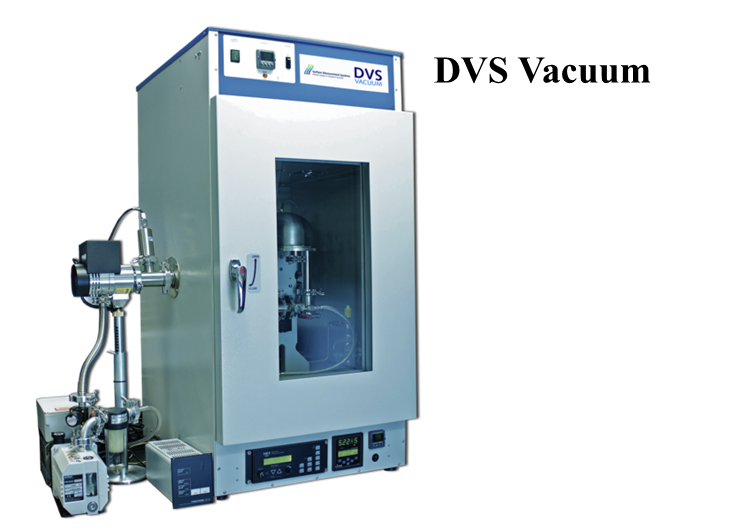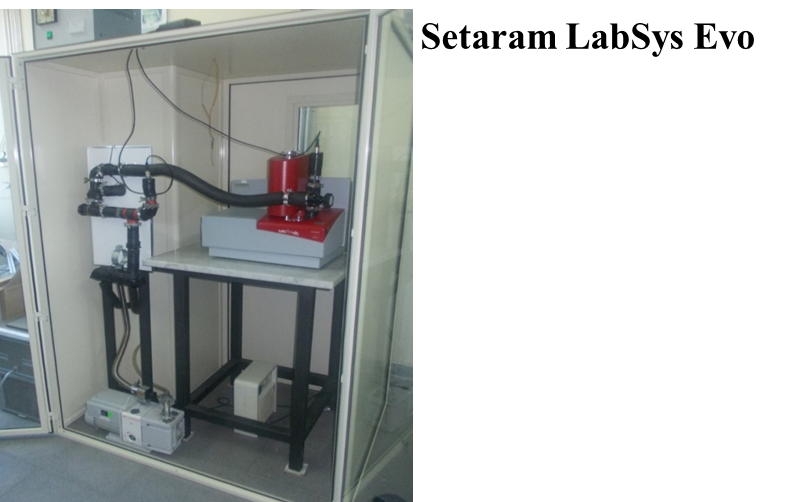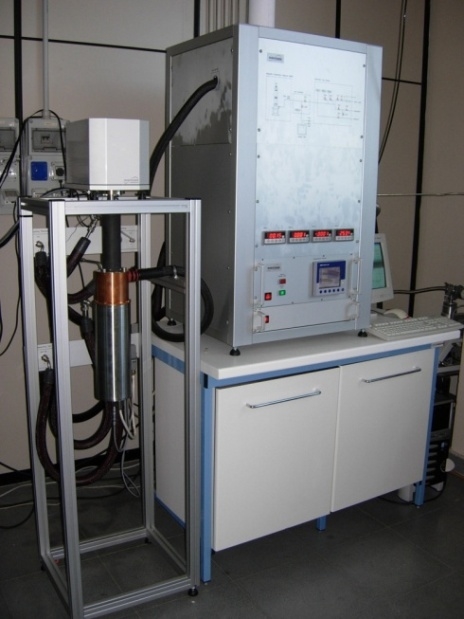The activity of the laboratory is based on the synthesis and characterization of adsorbent materials and phase change materials for thermal energy storage.
The synthetized materials consist in composite adsorption materials, called selective water sorbent, “SWS materials”. The SWS material is a two phase system which consist of a porous host matrix with open pores and a hygroscopic substance (commonly an inorganic salt) impregnated into its pores. A large variety of host matrices (such as silica gels, vermiculite, siliceous structures, etc.) and salts (LiBr, LiCl, MgSO4, CaCl2, Ca(NO3)2 etc.) can be used in the STES system, even though only a single couple will show the best adsorption properties for the application. In addition, adsorbent coatings are also prepared and characterized, in order to improve the thermal properties of heat exchangers used in adsorption heat pumps.

The lab is equipped with:
 DVS Vacuum Surface Measurement System: Traditional gravimetric methods used for study adsorption phenomena of vapors and gasses on porous materials and liquid adsorbents. It accurately and precisely measures adsorption-desorption isotherms and isobars over a broad range of temperatures and partial pressures.
DVS Vacuum Surface Measurement System: Traditional gravimetric methods used for study adsorption phenomena of vapors and gasses on porous materials and liquid adsorbents. It accurately and precisely measures adsorption-desorption isotherms and isobars over a broad range of temperatures and partial pressures.
- LabS
 ys Evo SETARAM: it is a powerful thermal analysis platform, suitably modified for working under vacuum and in water vapor environment. The system is used for the measure of the adsorption capacity of the porous materials (isobars and isotherms) and to evaluate at the same time the adsorption enthalpy.
ys Evo SETARAM: it is a powerful thermal analysis platform, suitably modified for working under vacuum and in water vapor environment. The system is used for the measure of the adsorption capacity of the porous materials (isobars and isotherms) and to evaluate at the same time the adsorption enthalpy.
- DSC1 METTLER TOLEDO: Differential scanning calorimetry (DSC) is a technique that allows to determine the energy absorbed or released during a phase change or a variation of the chemical properties of a sample over a wide temperature range. The same technique allows the evaluation of the specific heat of the materials. This methodology is used both for the study of phase change materials, in order to analyze the energy associated with the state transition, and for the adsorbent materials, for the evaluation of their Cp.
- C- Therm TCi: is a tool that allows the evaluation of the thermal conductivity and the effusiveness of the materials (solids, liquids, powders and slurry) using the technique defined “Modified Transient Plane Source (MTPS)”, compliant with the ASTM D7984 standard.
 Self-developed testing rig for carrying out accelerated aging cycles to verify hydrothermal stability of adsorption materials.
Self-developed testing rig for carrying out accelerated aging cycles to verify hydrothermal stability of adsorption materials.
The activity of characterization of adsorbent and phase change materials is also carried out by exploiting the institute equipment shared among all the laboratories, namely: X-ray diffractometer (XRD), X-ray fluorescence (XRF), scanning electron microscopy (SEM) accompanied by EDAX analysis, nitrogen phis-sorption at liquid nitrogen temperature (BET technique).
